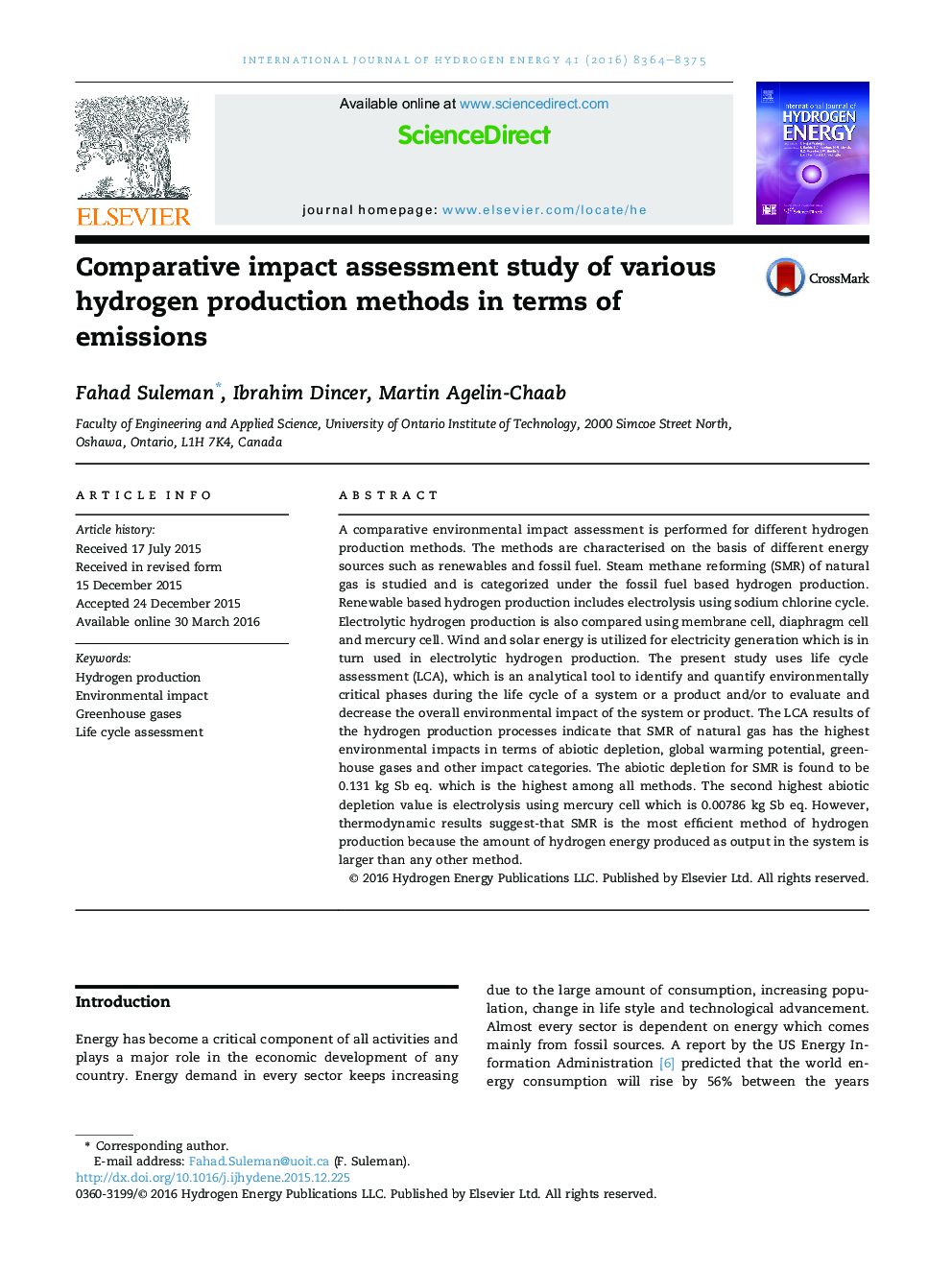| Article ID | Journal | Published Year | Pages | File Type |
|---|---|---|---|---|
| 1277332 | International Journal of Hydrogen Energy | 2016 | 12 Pages |
•Comparative impact assessment of some hydrogen production methods is presented.•Steam methane reforming and renewable based hydrogen production methods are investigated.•Environmental and social impacts are quantified and compared.•Different environmental impact categories are considered during analyses and assessment.
A comparative environmental impact assessment is performed for different hydrogen production methods. The methods are characterised on the basis of different energy sources such as renewables and fossil fuel. Steam methane reforming (SMR) of natural gas is studied and is categorized under the fossil fuel based hydrogen production. Renewable based hydrogen production includes electrolysis using sodium chlorine cycle. Electrolytic hydrogen production is also compared using membrane cell, diaphragm cell and mercury cell. Wind and solar energy is utilized for electricity generation which is in turn used in electrolytic hydrogen production. The present study uses life cycle assessment (LCA), which is an analytical tool to identify and quantify environmentally critical phases during the life cycle of a system or a product and/or to evaluate and decrease the overall environmental impact of the system or product. The LCA results of the hydrogen production processes indicate that SMR of natural gas has the highest environmental impacts in terms of abiotic depletion, global warming potential, greenhouse gases and other impact categories. The abiotic depletion for SMR is found to be 0.131 kg Sb eq. which is the highest among all methods. The second highest abiotic depletion value is electrolysis using mercury cell which is 0.00786 kg Sb eq. However, thermodynamic results suggest-that SMR is the most efficient method of hydrogen production because the amount of hydrogen energy produced as output in the system is larger than any other method.
